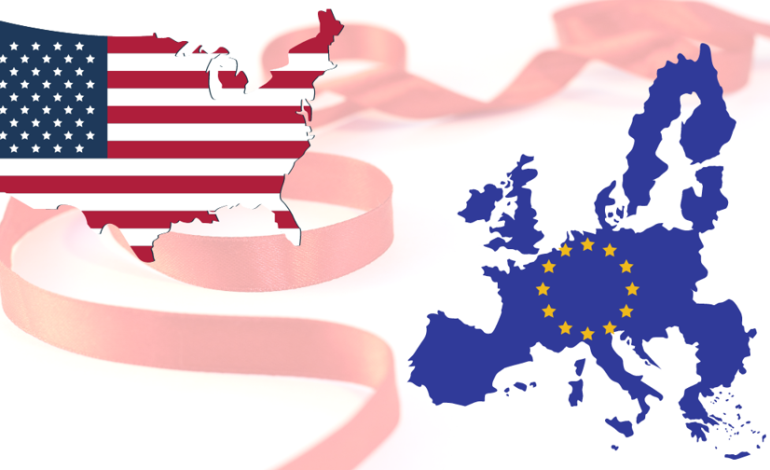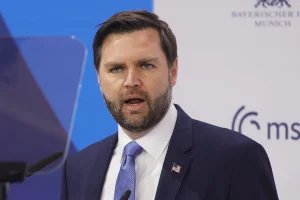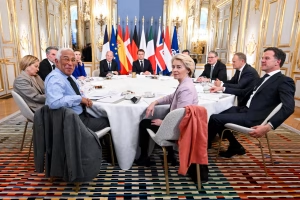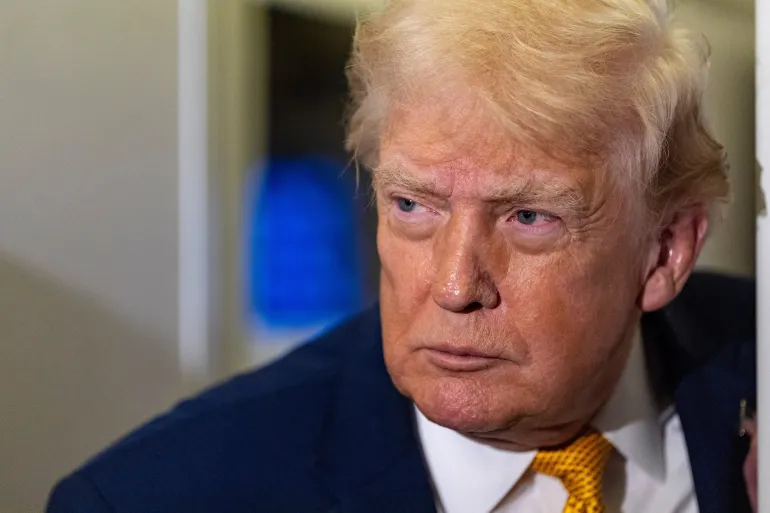EXCLUSIVE: America First? Europe Grapples with Shifting US Approach to Ukraine

Is the United States prioritizing its own interests in the conflict in Ukraine, and if so, what does Europe think of it?
This question hangs heavy in the air as a series of recent developments signal a sharp detour in US foreign policy. From direct talks with Russia to pointed questions about the effectiveness of aid to Kyiv, the US is showing a recalibration, causing Europe to rethink the transatlantic alliance.

The unfolding situation has been shaking the world for over a month now, ever since President Donald Trump entered his second term on January 20. The recent US-Russia talks in Saudi Arabia, which were held earlier this week, with Ukraine and Europe not present at the negotiating table, followed a firestorm speech by US Vice President JD Vance in Munich – which left EU leaders sobbing and stunned.
Vance criticisms of European nations’ policies on free speech, democracy, and immigration in Munich triggered an emergency summit called by French President Emmanuel Macron, which ultimately failed to produce any concrete agreement.
In addition, statements from key Trump administration like US Defense Secretary Pete Hegseth, suggesting that long-term goals such as Ukraine regaining its pre-2014 borders or joining NATO are “unrealistic,” sends a clear message – America seeks to disengage (at least, for now).

Wyoming Star sought insight from American-born political scientist Douglas Yates, who is currently living in the French capital of Paris, to understand the European perspective on these developments.
Yates paints a picture of anxiety and uncertainty gripping European capitals.
“The most significant geopolitical challenges facing Europe now include the loss of a reliable security partner in the United States, and the fear of Russian aggression, including the support of extreme right political forces intent on destroying liberal democracy on the continent,” Yates explained.
He believes that Europe now stands in front of the daunting task of bolstering its own security capabilities and forging a more unified front, something it has struggled to do historically.
Indeed, this shift forces Europe to confront a number of uncomfortable realities.
- The first is the question of financial burden-sharing.
With the US seemingly less willing to foot the bill for the conflict, European nations are under pressure to increase their own defense spending, potentially diverting resources from other vital sectors, Yates says.
- The second is the question of strategic autonomy.
As the US explores avenues for direct engagement with Russia, European leaders risk being sidelined and having their own interests and perspectives ignored. This dynamic is playing out even now as European leaders have not been invited to participate in the US-Russia bilateral negotiations in Saudi Arabia, forcing European leaders to scramble to come up with a strategy to secure a potential ceasefire in Ukraine, Yates believes.
According to the professor, the implications of a more inward-looking US policy could be far-reaching.
“If the US continues to reduce its security commitment, European countries will have to increase their defense spending to offset the loss. Defense expenditures will create new winners and loser. Obviously, the defense industries in Europe will be the main beneficiaries, especially if Europeans can cooperate and create economies of scale. The main losers will be public sector employment, especially in education, culture, and health care.”
Yates also offers a particularly harsh assessment of Vice President Vance’s comments, viewing them as emblematic of a US leadership that may be out of touch with European realities.
“J.D. Vance showed his true colors, and his appeal to racist tropes was clearly understood on the far right (as a dog whistle) and on the center and left (and a shot across the bow). It is unfortunately, as an American abroad, to see a vice president who is unaware of how he and his party and his government are perceived.”
Furthermore, Yates suggests that this shift in foreign policy could also influence immigration patterns because of imitations to Trump’s policies and/or potential support for extreme right.

The flurry of diplomatic activity, including the upcoming visits of French and British leaders to Washington, underscores the urgency of the situation. Europe is desperately seeking clarity on the US’s long-term commitment and exploring ways to adapt to a new era of uncertainty. The plans for a European-led “reassurance force,” contingent on US support, highlight the continued dependence on American capabilities, but also the growing recognition that Europe must take greater responsibility for its own security.
Overall, as French and British leaders are scheduled to visit Washington in a flurry of diplomatic activity, Europe signals uncertainty over the situation, trying to figure out how to adapt.
Regardless, the message to Europe is clear: the era of unquestioned American financial support and reliance is over, as the US increasingly prioritizes its own interests. What Europe does with that message will shape the future of the transatlantic alliance and the security landscape of the continent for decades to come. As Yates concludes:
“Nato without the United States would not be able to defend itself, not now.”









The latest news in your social feeds
Subscribe to our social media platforms to stay tuned